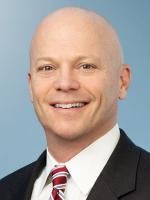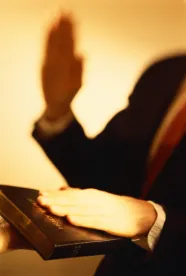The Maryland Court of Appeals has retired the inflexible Frye-Reed standard and adopted the framework of Daubert for evaluating the admissibility of expert testimony. In Rochkind v. Stevenson (August 28, 2020), Maryland officially joined the supermajority of states that have considered the issue and now follow Daubert.
Previously in Maryland, pursuant to the Frye-Reed standard, before an expert opinion was to be received as evidence at trial, the basis of the expert’s opinion had to be generally accepted as reliable within the expert’s relevant scientific community. Over time the standard evolved into “Frye-Reed Plus” and implicitly and explicitly relied on and adopted several Daubert principles. Thus, in order to be admissible, expert testimony discussing novel scientific theories was subjected to both the minimum threshold of the Frye-Reed standard and Maryland’s Rule 5-702 – the counterpart to Federal Rule of Evidence 702 – requirements. However, expert testimony addressing non-novel scientific evidence was evaluated using only the requirements of Rule 5-702.
Maryland courts, however, never defined “new” or “novel” scientific methods, and never held that any scientific method was not subject to Frye-Reed because it was not new. As a result of this lack of clarity and Maryland’s “jurisprudential drift,” many courts applied a duplicative analytical process that muddied the waters of expert testimony admissibility, leaving judges as well as practitioners often confused and at sea.
The landscape finally changed in Rochkind v. Stevenson, where the court clearly and officially adopted Daubert as the single standard by which Maryland courts are to evaluate all expert testimony. The court retained the original Daubert factors for determining reliability when interpreting Rule 5-702:
-
Whether a theory or technique can be (and has been) tested
-
Whether a theory or technique has been subjected to peer review and publication
-
Whether a particular scientific technique has a known or potential rate of error
-
The existence and maintenance of standards and controls
-
Whether a theory or technique is generally accepted
The court adopted five additional factors for determining whether expert testimony is sufficiently reliable, derived from the federal case law:
-
Whether experts are proposing to testify about matters growing naturally and directly out of research they have conducted independent of the litigation or whether they have developed their opinions expressly for purposes of testifying
-
Whether the expert has unjustifiably extrapolated from an accepted premise to an unfounded conclusion
-
Whether the expert has adequately accounted for obvious alternative explanations
-
Whether the expert is being as careful as he or she would be in his or her regular professional work outside his or her paid litigation consulting
-
Whether the field of expertise claimed by the expert is known to reach reliable results for the type of opinion the expert would give.
The court also concluded that the Supreme Court’s guidance in Daubert, Joiner and Kumho Tire is critical to a trial court’s reliability analysis, and while the Daubert inquiry is flexible, courts must consider the relationship between the methodology applied and conclusions reached. Moreover, there is no longer a need to distinguish new or novel techniques or determine if testimony embraces a scientific technique.
The court’s Rochkind decision is effective immediately, and it applies to cases that are pending on direct appeal where the relevant question has been preserved for appellate review.





 />i
/>i

